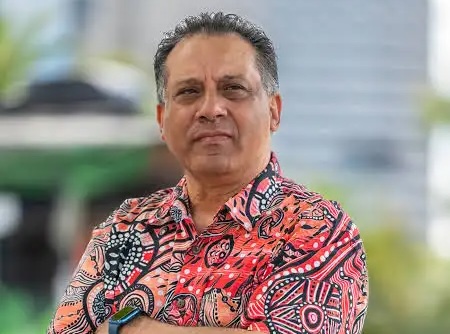TRIGGER WARNING: This post discusses a project that addresses child sexual abuse and trauma.
Left / Write // Hook (LWH) is a creative arts research project and documentary that explores how the dual approach of written/verbal and embodied creativity serves to enhance the wellbeing of survivors of sexual abuse and trauma. The research process involves a series of workshops. The first hour of each workshop is dedicated to generative writing based on a prompt, then sharing and listening. The second hour is designed to enable women to reclaim their bodies as sites of power and strength, through the physical impact of non-contact boxing for sport.
The project was funded through CAWRI and brings together researchers on mental health and wellbeing (Dr Margaret Osborne and Dr Khandis Blake) with a documentary film-maker (Shannon Owen) and me, Donna Lyon, as the project leader. We are all based at the University of Melbourne. I am the workshop facilitator, co-participant, boxing trainer and documentary producer.
The first two workshops were in person at Mischa's Boxing Gym in Footscray. In workshops like this, where a carefully considered trauma-informed approach is used, there is an incredible sense of vulnerability and openness which is almost immediately apparent. As soon as someone introduces themselves to the group, and states that they are an incest survivor or a survivor of childhood sexual abuse, it sets a heavy tone. I normally acknowledge trigger warnings, but truthfully, just turning up is a trigger.

In the first workshop, there were women in tears, punching bags and screaming profanities. In the second one, women were encouraging each other to release the pain that had been trapped inside their bodies for so long. Sounds dramatic huh? It is. But it is also safe, empowering and beautiful. All the time, the camera was rolling, quietly observing and bearing witness.
By the third workshop, COVID-19 had hit. One of the women messaged me on Facebook saying she didn't feel comfortable coming to the workshop, and suggested we take a break until the pandemic was over. But I knew if I took a break that it would be very difficult to reconvene with the same group of women and maintain the cohesion of the group. I didn't want to start again. This group of women were special. So, I quickly transitioned the group online, to forge ahead and just see what would happen.
We lost one woman, who had to go to South Africa where her daughter was spending time in a treatment program, and talk of travel bans made this trip fairly urgent. Another woman also struggled to turn up each week because of tricky co-parenting arrangements. Everyone else managed to stay the course.
Each week, we met and Zoomed and wrote and shared, and each week there were tears. Then, we dropped our pens and worked up a sweat, as I led the group through various boxing drills, strength and conditioning exercises, with each member joining the group from her bedroom, courtyard or garage. The women also recorded weekly video diaries, some of which I hope might end up in the documentary film. We also regularly checked in with each other mid-week, to talk about how things were going. We discussed the George Pell case and our frustrations about institutional abuse and the difficulty survivors face in obtaining justice. We left the conversation by reframing the sense of powerlessness that we felt and reminding ourselves that we were brave by speaking out.
Over the weeks, the experience became a meta-analysis of the COVID-19 isolation — an isolation inherent in the world of a survivor. This isolation might be from one's family, or from one's peers, or an isolation (dis-connection) from self. Either way, the isolation of the COVID-19 lockdown offered a new way to frame our narratives.
At the same time, we honoured the fact that the experience was confronting for many of the women. One woman, Julie, talked about missing hugs the most (Julie loves hugging people). For Claire, she loved spending time at home, but being ordered to stay home by the government was enormously triggering. It reminded her of the oppressive environment that she grew up in where there was no escape and of the institutional abuse she faced behind locked doors. For Nikki and me, we worried that we liked the isolation too much and that we wouldn't want to come out of it when everything went back to normal.
Even though the official workshop series has now ended, we have decided to keep going anyway: to keep meeting and refining our practice, and recording the sessions. We are looking to publish a book on the writings produced during the workshop, which talk about the need to just punch things and get physical. I'm going to introduce pillows into the process next time, so that we can punch into them and scream profanities inside our bedrooms, courtyards and garages.
Shannon, the documentary film-maker, is now stepping in to help build and shape a story from the recordings. This story was in some ways never meant to be like this. But as a group of childhood sexual abuse survivors, it was already never meant to be like this, and it shouldn't have ever been like this. But with Left / Write // Hook, we can fight and write on together.





.png)